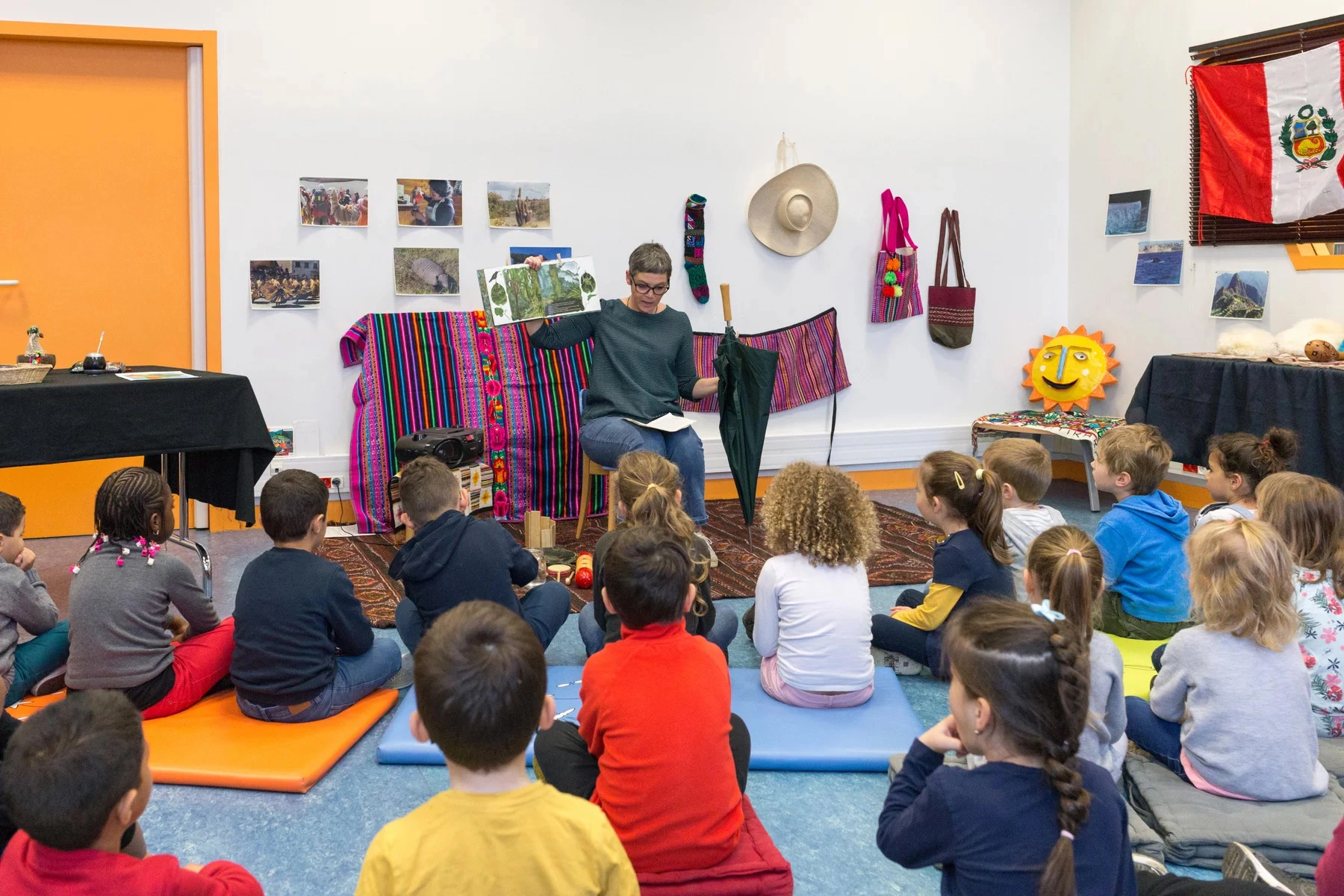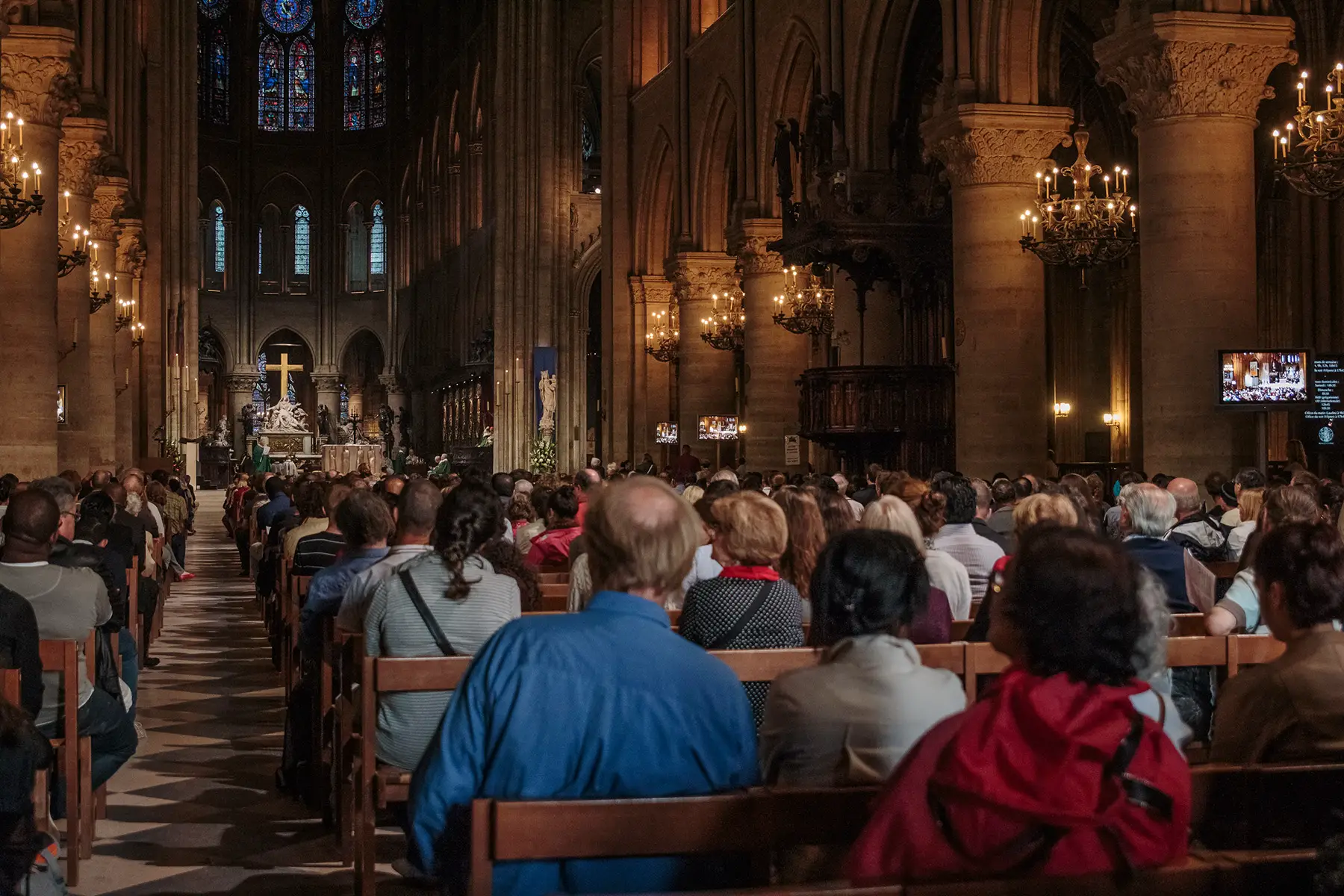If you’re moving to France with children, you’ll find many high quality international schools across the country that cater to the needs of expat families.
While the French education system offers a high level of instruction, there are also many reasons to opt for international schools, including giving your child a country-specific curriculum to help them integrate when your family returns home. Alternatively, you may simply prefer the multicultural learning environment French international schools provide.
Keep reading for more on the following topics.
- The French education system
- International schools in France
- Types of international schools in France
- The International Primary Curriculum (IPC)
- The International Baccalaureate (IB) in France
- The Baccalauréat français international (BFI)
- American international schools and Advanced Placement (AP)
- British international schools
- The International GCSE (IGCSE)
- The European Baccalaureate (EB)
- Other national international schools
- Religious schools in France
- Method schools in France
- Should you send your child to an international school in France?
- How to choose an international school in France
- Useful resources
Globeducate
Globeducate is a network of 60+ international schools in 12 countries.They provide a world-class bilingual K-12 education in English and other languages, with schools in Africa, Asia, Europe, and North America. Explore Globeducate schools near you, and find out how your child can become a global citizen.
The French education system
In France, attending school is mandatory from the age of three. State schools are free, co-ed, and secular, with a generally high standard of education. The state also funds most private schools, of which a minority of children in France (around 20%) attend. Private schools also follow the same curriculum and charge relatively reasonable fees.

Additionally, there are a few fully independent (hors contrat) schools that provide a religious education and sometimes host international students.
International schools in France
France is home to some of the top international schools in Europe, boasting rigorous educational standards and innovative programming for their students.
The term international school (école internationale) may refer to those with English as the instruction language, those that offer a fully bilingual program in various languages, and French schools with a section internationale. The latter offers a few hours of lessons per week in any one of 19 foreign languages.
At the end of secondary school (lycée), international students in some schools can select to sit a bilingual exam, such as the Franco-German baccalaureate or the Baccalauréat français international, which is available in 14 languages. The Franco-American baccalaureate, on the other hand, is currently only available at schools in the US.

Unlike the globally-taught International Baccalaureate (IB), the Baccalauréat français international (BFI) is part of the French examination system. You will also find international schools in France that teach a UK curriculum that leads to GCSEs and A-Levels or an American curriculum that leads to a high school diploma, plus ACT or SAT.
There are several international institutions that give accreditation to schools in France, including:
Types of international schools in France
The different types of international schools in France cater to particular age ranges and offer specific curricula and educational options. Many also have different tracks or outcomes that you can choose from in your child’s last years of school.
The International Primary Curriculum (IPC)
The International Primary Curriculum (IPC) is a status awarded to schools that focus on developing international-mindedness in 3- to 10-year-olds. Currently, the only school that offers the IPC in France is the Forest International School Paris.
The curriculum aims to prepare students to become globally competent citizens by developing their interest in world cultures and diverse perspectives. The teaching focuses on the emotional, spiritual, and intellectual development of a child. Moreover, it encourages curiosity, creativity, and active learning.
The International Baccalaureate (IB) in France
The International Baccalaureate (IB) is an internationally recognized educational curriculum taught in over 3,000 schools and 143 countries. As of 2024, there are 24 IB schools in France that offer either a bilingual or solely English-language education for children between 3 and 19. From the age of 16, students choose between a diploma- or career-oriented program.
The IB Diploma requires students to study six subjects over two years, and there are different courses within each subject group. Subjects include languages and literature, language acquisition, individuals and societies, sciences, mathematics, and the arts. Students must also take an additional course in philosophy, contribute to creative activity or service, and write an essay.

Schools in France preparing students for the IB include:
- ISN Nice – offers IB programs and IB Diploma
- ICS Paris – teaches primary and secondary IB programs as well as IB diploma
- ICS Côte D’Azur – a primary school offering the IB Primary Years Programme (PYP)
Universities around the world recognize the IB as a university admission level qualification. This makes it an appealing option among expat parents who wish to give their child the opportunity to study abroad later in life.
The Baccalauréat français international (BFI)
Some international schools in France prepare students for Le baccalauréat Français international (BFI), which is offered in 14 different sections.
However, the BFI is not to be confused with the IB. It is specifically for bilingual students or international students who are fluent in French and plan to apply to a French university.
The BFI is one of the French general baccalauréats. Essentially, students can choose from three study streams, as follows:
- L (French, Languages or Arts, Philosophy)
- ES (Economics, Mathematics)
- S (Mathematics, Physics/Chemistry, Earth and Life Sciences)
Additionally, they can choose an international option such as literature, history, and geography. This is taught in their home language and set and marked by the education authorities of France and their home country. The BFI gives automatic admission to higher education in France and meets the university admissions qualification elsewhere in the world.
Schools offering the BFI include:
American international schools and Advanced Placement (AP)
Some schools, such as the American School of Paris, offer a US-based program that leads to a high school diploma. This prepares students for the ACT and SAT college entrance exams that facilitate access to American universities.

A selection of Advanced Placement (AP) classes is available, allowing students to earn credits for university while still in high school. They can also select a combination of courses from the AP and IB curricula that cover a broad range of subjects such as arts, sciences, and humanities.
British international schools
France has a couple of British international schools as well, namely the British School of Paris and Mougins British International School on the Côte d’Azur.
These schools host a broad community of international students while alsoo representing a British independent school style of education. British international schools prepare students for the English GCSE and A-Level exams.
The International GCSE (IGCSE)
The IGCSE (International General Certificate of Education) is administered by different exam boards such as Edexcel, Oxford AQA, and Cambridge. It is equivalent to the GCSE which students in the English school system study for in Years 10 and 11 (ages 14 to 16).
The IGCSE requires students to study a range of subjects, including math, English, sciences, and humanities. After they complete the IGCSE, they can go on to study A-Levels which, depending on their grades, grant them entry to university. Many international schools in France and across Europe offer these qualifications as part of their secondary school curriculum.
The European Baccalaureate (EB)
The European Schools, which are intended largely for the children of employees of the EU, offer the European Baccalaureate (EB).
Each year, more than 1,500 students take the European Baccalaureate (EB), which is internationally recognized for its high standard. It consists of five written exams, including French, English, and mathematics. Students also take two elective subject exams and complete three oral exams.

Although there are no official European Schools in France, some international schools, including École Internationale PACA Manosque, offer this curriculum.
Other national international schools
Apart from the typical American and British international school curriculum, you can also find schools in France that set their standards according to that of other countries. This means teaching in the country’s national language or languages, with additional classes in French.
Some of these schools include:
- Alye Parussa École bilingue Franco-Russe
- École Japonaise du Nord-Pas de Calais
- International Deutsche Schule Paris
- École Suédoise de Paris
Religious schools in France
All religious schools in France are private and most offer a French-language curriculum. However, while some provide excellent general education along with religious teaching, others are not as high in quality. It’s always worth researching their ranking before considering a religious school for your child.
Jewish families in Paris can enroll their children in the Ecole Juive Moderne, which offers trilingual primary and middle-school education in English, French, and Hebrew.
Catholic schools in France include Marymount International School of Paris (ages 2 to 14) and Chavagnes International College, a boys Catholic boarding school that prepares students for GCSEs and A-Levels.
There are also private Islamic schools in France, many of which focus on teaching the Arabic language.
Method schools in France
The French education authorities recognize Montessori and Steiner-Waldorf schools in France. These institutions have the freedom to teach a curriculum that is based on their unique educational philosophies.
While many of these schools are for younger children (pre-school and primary level), some also accept older children and may offer conventional qualifications, such as the French Baccalauréat, which is the gateway to higher education in France.

You can contact the Association Montessori de France and La Fédération des écoles Steiner-Waldorf en France for more information.
Should you send your child to an international school in France?
France boasts a wide range of impressively high quality international education options. However, how do you choose between a local and an international school? Below is a summary of the main advantages and disadvantages of international schools in France.
Advantages
- Offer more extracurricular activities and better facilities
- Provide internationally recognized qualifications
- Have a global community of teachers and students
- Place a strong emphasis on multiculturalism and languages
- Have smaller class sizes and a high teacher-student ratio
- A country-specific curriculum or IB education offers consistency for future moves
- Parents can communicate in their own language
Disadvantages
- International school fees are expensive
- Children may integrate less into the local French culture and language
- There may be additional pressure on your child since many international schools assess a child’s academic abilities through high-stress exams
- The majority of schools are located in Paris and bigger cities, so it can be difficult to find one in smaller towns or rural areas
Whatever you choose, education standards in France are generally high, so rest assured that your child will likely receive a quality education.
How to choose an international school in France
If an international education is a good fit for your child, the next challenge is choosing an international school. Below is a list of factors to consider when searching for the best international school for your child in France:
- Location: in and around Paris, your choices are broad, but elsewhere your options are limited; however, some schools offer boarding facilities.
- Education system: which curriculum or teaching style best suits your child?
- Nationalities present: Are the teachers mostly French or native speakers of the school’s main language? Are the majority of students from one country or a mix of local and international?
- Main languages spoken: some schools offer bilingual education, while others offer additional languages as subjects.
- Qualifications available: students could study for different certificates in the same school, particularly in preparation for higher education in a specific country.
- Reputation: this can be tricky if you don’t yet have a network, but The Good Schools Guide can help.
- Academic results: for secondary education, it’s worth checking the percentage of students who continue to higher education.
- Fees: these can range from around €2,000 to over €20,000 a year, however, some employers subsidize education fees.
- Admission and enrolment procedures: some schools require academic, language, and personality-focused assessments before registration.
- Extracurricular activities and facilities: schools may offer various clubs, activities, trips, summer camps, or language courses.
Financial aid and scholarships for international schools in France
State subsidies are available for low-income families, from primary school age (six years) and up. These can help with the costs of school materials, school meals, and travel to school. The Allocation de Rentrée Scolaire (ARS) is also available for all children with disabilities; this starts at around €370 per year in primary school.

If your child is boarding in a private secondary school, then you may benefit from the Prime à l’Internat. However, this only applies if your child has a scholarship or bourse (a need-based financial aid program) that is based on parental income. Additional merit grants can be awarded but only to high-achieving boursier students.
Individual schools may offer their own academic or talent-based scholarships. It’s worth approaching your local or preferred international schools to find out if such grants exist.
How to apply for financial aid
National applications for bourse scholarships differ depending on whether you are applying to a public or private school, and a collège or lycée. If your child is attending a public school, you can complete all administrative procedures through the Scolarité Services portal.
Conversely, for private schools, you should reach out directly to the school secretariat to complete the necessary forms. Parents or students must submit their scholarship requests at the start of the school year. You can check whether your family can benefit from this on the Aide Sociale website.
Useful resources
- Council of International Schools (CoIS) – the membership community of international education
- ELSA – the English Language Schools Association
- Middle States Association (MSA) – the accreditation body for American curriculum schools
- European Council of International Schools (ECIS) – the educational collaborative for international schools
- British Council – the UK’s international organization for cultural relations and educational opportunities
- French Ministry of Education – the French government website for education
- International Baccalaureate (IB) – the official website of the internationally recognized qualification
- Rankings of French lycée – the French secondary school rankings
- The Good Schools Guide – search and compare schools in France
- International Schools Database – database of French international schools






